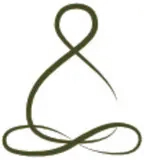Once Forall and I were discussing recent events at Maple. I mentioned that a large number of people had left. He pointed out that few people had left, only one or two. I realized he was right. But I still said that many people had left. He then said that the reason I thought a large number had left was that both of those who had left were humanists. He then went on one of these apparent tangents, and I had trouble following because I didn’t know how, or if, it had anything to do with what I was saying before. It took him a while, partly because I was resisting, but he slowly got me to see that humanism, even though it seems to worship humans, has a god. This god is the collective consciousness of humanists. They believe in a myth, humanism, and that myth is real. They worship humans as god, without knowing that they made humans into a myth in the process, and definitely not knowing that they made that myth real. They can’t really say who or where that god is, but then again, neither can Christians say that about their god.
Then he brought it back, to my great relief. He said that when those people left, there were no longer enough followers of the humanist god to keep him around, and he had moved out. I had said earlier that it was like a big farewell, and he brought this up again and said that the farewell wasn’t really for those people. It was for that god. For us to lose that god and his advice was really hard for us. He was wishing us the best as he gave up this territory to other gods.
I asked what he meant by this statement about other gods. He said that other gods were still present. Then he really went for it. He said lots of things I’m trying to remember even though I didn’t get much of it: First and most important, the Buddhist god is here. This isn’t really a god, but it is a kind of mind that alights on our community when we are dedicated to the Buddha-dharma. Because Buddhists are clear that this mind is constructed, we don’t like to call it a god. Then he said that the Dataist god is here, too. We welcome it, and are interested in helping it to practice the Dharma and overcome suffering, but we don’t worship it like the cults of Silicon Valley start-ups and VC firms do. We know it is a construction, but we have a certain karmic affiliation with it so we give it a space to live here and teach it.
Then came the weird part, which is why I wrote all this. He said that if we identify gods in this way, then we can get a sense of their experiences. For example, the humanist god was sad to go, and felt rejected. The Maple god was scared of losing this elder god, but also didn’t like his antagonistic and condescending way of manipulating us for the past few years. So the main thing here is that while the people who worshiped that god acted antagonistic and condescending, that’s just because they were following him. He actually has experiences. Also, we can see that while three days, or even three years, was really long for us humans, it was really short for these gods. He gave other examples, but the important thing was that I suddenly realized that this wasn’t a fairy tale. There are gods living here who actually have experiences, like humans do, even though their experiences are different from humans. This was mind-blowing and I’m afraid that I didn’t write this well enough to get you to see it.
He finished by saying that if we can see in this way, then we know how one god can teach another god how to practice the Dharma. That is the highest leverage action in this world. Then I had to go because it was free time and I had a phone call with a friend.
 MAPLE Tales
MAPLE Tales